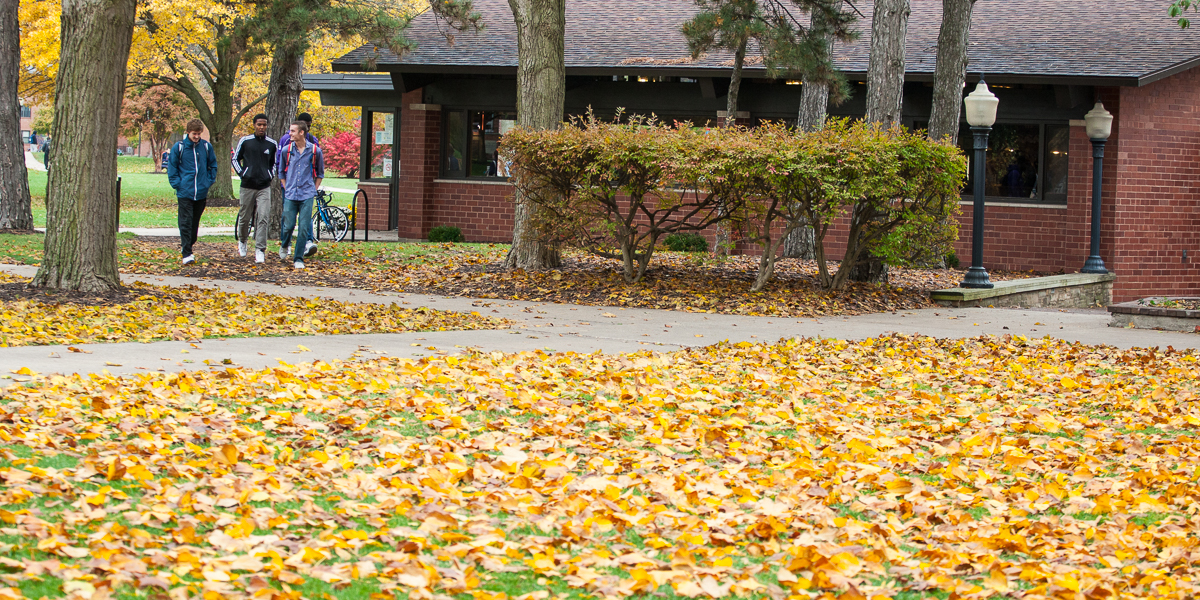

Venture Boldly


Knox College has established an “Abolition for All Time” Humanities Lab. This initiative focuses on “abolition” as an historical legacy of the College, but also as an urgent concern for its present and future. The Lab serves as an incubator for course-based projects to generate new opportunities for civic and community engagement, a core graduation requirement for all students. The projects range from archival-based research courses with points of inter-institutional collaboration to experiential learning opportunities exploring contemporary social justice issues. The Lab promotes communication and cross-fertilization among projects and supports shared needs in digital media presentation, while also ensuring alignment with learning goals.
Knox has created the “Abolition for All Time” Humanities Lab to serve as a design and development platform for new courses that connect humanistic study with students’ civic and community engagement. In 2018, Knox revamped its general education curriculum to include its first civic engagement requirement. This requirement draws inspiration from deep institutional legacies. Like peer institutions founded in the early decades of the 19th century, Knox grew out of a sense of mission combined with practice. A group of abolitionists constructed a new town anchored by a college, grounding their principled opposition to slavery in an ethos of manual work as essential to intellectual achievement. Although abolitionists of the era were seen as zealots, the College and community nonetheless persisted in their anti-slavery activism. While the College remained non-sectarian, its mission of social justice defined its history. The College was conceived as coeducational and multiracial from its beginning. Knox graduated one of the first Black students in Illinois, Barnabas Root, and the first Black U.S. Senator, Hiram Revels, was also educated at Knox. Knox graduates populated the ranks of teachers in “freedmen’s schools” across the Reconstruction-era South. A hundred years later, students joined the “Freedom Summer” voter registration drive of 1964. In recent years, the College has had among the most diverse student bodies in the Midwest; in 2020, nearly 40% of its U.S. students were students of color.
Tracing the College’s history in this way lends credence to the view that civic engagement developed as a form of genetic inheritance from its abolitionist founders. A fuller history, however, must record that Knox grew from the same colonizing presumptions that underwrote the emergence of most midwestern colleges, remapping the prairie to support national expansion. At times, Knox looked more similar to other midwestern institutions, remaining a predominantly white institution in segregated America. It began enrolling significant percentages of students of color or new immigrant populations only in recent decades. Indeed, the mandate for a civically-engaged education may not have wavered, but its urgency and moral vision varied over time. The question of what that legacy means today is, therefore, all the more urgent.
The “Abolition for All Time” Humanities Lab (“Abolition Lab”) explores these abolitionist legacies, serving as an intellectual hothouse for growing contemporary expressions of this ethos by promoting humanities education as the leading edge of our renewed civic engagement requirement. As an umbrella for multiple interrelated projects, the Lab leads collaborative development of new humanities-based experiential learning opportunities. In the process, the Lab explores the link between the historic and literal meanings of “abolitionism,” a commitment to eliminating evil social practices, and its recent reinterpretation to label various antiracist projects within educational, political, and social reform more broadly.
The Lab is built on the proposition that knowledge of the legacies of the abolitionist founding, as well as subsequent periods of discontinuity and silence, is central to both students’ identity as engaged learners at this institution and also their development as eventual civic leaders. Cultivating students’ skills in humanistic work is especially critical at this moment of social disruption, loss of confidence in institutions, and yearning for sources of legitimacy. Running through the projects described below is a firm commitment that humanities work in the civic space must be in critical conversation with the ways in which the humanities operate in academic spaces. Therefore, the Abolition Lab will serve as a new vehicle for conversations across the humanities. It will promote sharing of methodologies and interdisciplinary perspectives on civic engagement. It can thus help reinvigorate the course development and approval process to align with social justice priorities articulated for the curriculum as a whole.
-- November 2021